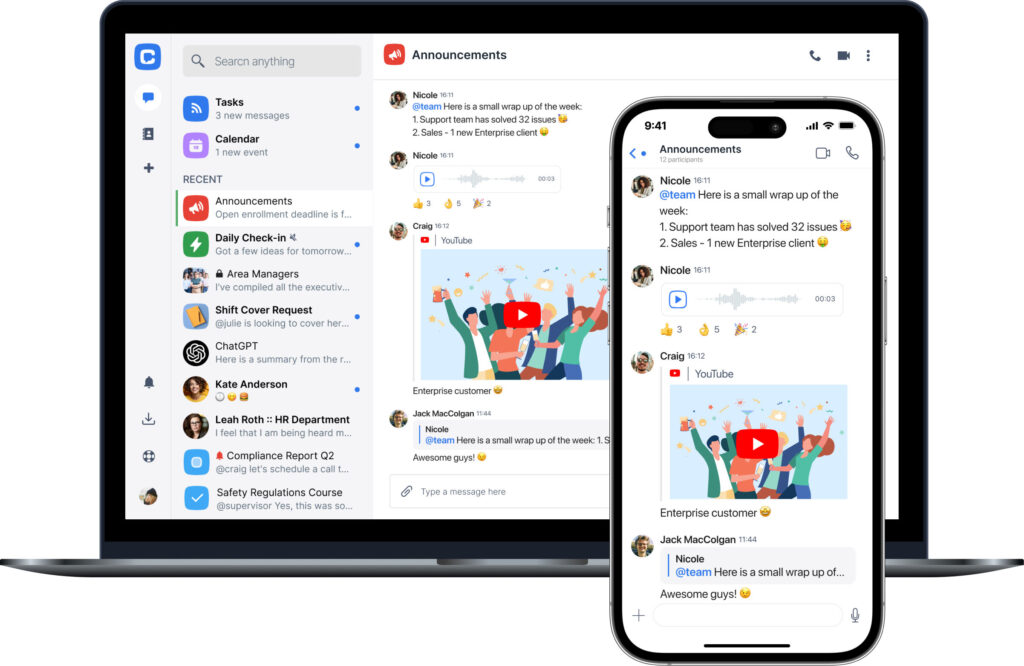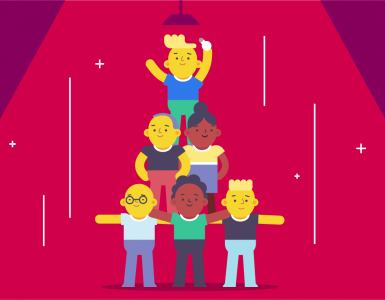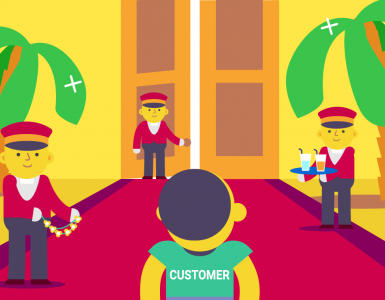Productivity is no longer confined to the traditional office. Many are starting to embrace the possibility of working from home or freelancing to get this supposed flexibility to work anywhere. As of 2023, over 73 million Americans are freelancing, and it is continuous, they say. Of course, this can be really tempting-one has complete freedom in choosing where and when to work.
But with that freedom comes the challenge of keeping connected: teams scattered in different locations, freelancers juggling a number of clients all over the world. And it’s such a landscape that makes collaboration really crucial. This is where online collaboration software steps in with a range of tools designed to keep everybody on the same page, wherever they may be.
It’s turned these tools into indispensable workflow helpers, supplying functionality that can let remote teams and freelancers interact just as seamlessly as if they sat shoulder-to-shoulder.
To help you navigate the various options available, here’s a quick comparison of some of the top online collaboration tools in the market today:
| Feature | Chanty | Slack | Microsoft Teams | Zoom | ClickUp | Trello | Asana | Monday.com |
| Purpose | Team messaging, collaboration | Messaging, team collaboration | Team communication, collaboration | Video conferencing, online meetings | Project management, productivity | Project management | Task, project management | Project management, team collaboration |
| Key Functionality | Instant messaging, task management | Channels, direct messaging, file sharing | Channels, video calls, file sharing | Video calls, webinars, meetings | Task management, time tracking, reporting | Task tracking, boards, due dates | Task tracking, project planning | Task management, automation, workflows |
| File Sharing | Yes, within chats & tasks | Yes, within channels & messages | Yes, within channels & messages | Yes, share screens & files in meetings | Yes, attach files to tasks | Yes, attach files to tasks | Yes, attach files to tasks | Yes, attach files to tasks |
| Task Management | Yes, with Kanban boards | No, uses integrations for task management | Yes, with integrated task management | No | Yes, tasks, subtasks, deadlines | Yes, boards, cards, and lists | Yes, task assignments and deadlines | Yes, tasks, timelines, and deadlines |
| Video/Voice Calls | Yes, voice calls and video meetings | Yes, voice and video calls within chats | Yes, voice and video calls | Yes, HD video & audio calls | No | No | No | No |
| Integrations | 1,000+ apps, including Google Drive, Slack, etc. | 2,400+ apps including Google Drive, Zoom | 100+ apps, including Microsoft 365 | 100+ integrations including Slack & Google Calendar | 1,000+ apps, including Google Drive, Slack, etc. | Power-ups with various tools | 100+ apps, including Google Drive | 50+ apps, including Google Drive, Slack |
| Mobile App | Yes | Yes | Yes | Yes | Yes | Yes | Yes | Yes |
| Customization | Limited customization | High customization (channels, notifications, etc.) | Moderate customization (channels, notifications) | Customizable virtual backgrounds | High customization (views, fields, automations) | Limited customization | Moderate customization (views, notifications) | High customization (views, workflows, dashboards) |
| Search Functionality | Yes, advanced search features | Yes, powerful searchable archives | Yes, powerful search | Yes, meeting & chat history search | Yes, task and project search | Limited, but basic search available | Yes, advanced search and reporting | Yes, task and project search |
| Pricing | Free plan + Paid plans starting at $3/user/month | Free plan + Paid plans starting at $8.75/user/month | Free plan + Paid plans starting at $4/user/month | Free plan + Paid plans starting at $13.33/month | Free plan + Paid plans starting at $7/user/month | Free plan + Paid plans starting at $5/user/month | Free plan + Paid plans starting at $10.99/user/month | Free plan + Paid plans starting at $9/user/month |
| Best For | Small to medium-sized teams, startups | All business sizes, tech teams, remote teams | Enterprises using Microsoft products | Teams needing reliable video conferencing & webinars | Teams looking for comprehensive task & project management | Small teams and visual project managers | Teams with complex task & project management needs | Teams needing flexible project tracking & collaboration |
What is online collaboration software, and why does one care about this?
Imagine just one place for communicating with your team and sharing all of your documents while keeping an overview of each milestone-whichever place the individual works from. Online collaboration software offers just that: a virtual office, which actually links people and places, whether from your living room or a coffee shop halfway across the world.
These are a set of tools designed to make teamwork easy, as smooth as being in the same room while working remotely. It’s loved by freelancers to manage clients and by teams to keep in sync across time zones.
So why you should use online collaboration software? Here’s how it’s going to make your work life that much easier:
- Talk hassle-free: Instant messaging, video calls, and shared spaces make communication easy. No more juggling endless email threads.
- Keep everything in one place: Forget hunting for files or scrolling through chats to find that one task update. With these tools, it’s all in one spot.
- Stay on the same page: Real-time updates mean you can see changes as they happen. No confusion, no delays.
- Work from anywhere: Whether on-the-go, working from home, or halfway around the world, these platforms offer a way of working with your colleagues in real life as if one were right there. You can get more work done with increased organization and ease of communication because these tools let you actually spend time working.
- Enhance morale in a team: it instills confidence, motivation, and responsibility because each person in the team understands his or her roles and has everything they need.
Remote team collaboration software takes this even further, ensuring seamless interactions despite different time zones or work schedules. It’s ideal for businesses with a distributed workforce, allowing them to collaborate effectively across borders and time zones.
Online collaboration software is not a nicety but rather a must to have to hold together your modern teams. In the following section, we identify the best tools around and how they might boost your work to the next level.
1. Chanty

Chanty is an all-in-one workspace team collaboration platform. It keeps communications, tasks, and everything in between in one place, making the work process much easier. Think of it like a digital HQ where you could chat, set tasks, and collaborate smoothly with no need to constantly jump between apps. Be it a growing startup or a remote team, Chanty makes sure everyone is on the same page, hence making teamwork easy.
What makes Chanty special? It is basically a combination of instant messaging and task management. You are able to do all these activities on one screen – no toggling between inbox, chat, and project management tools. It’s perfect for teams who want a simple yet powerful tool that improves productivity without overwhelming them.
What is special about Chanty? That’s all about making collaboration faster and more intuitive. It offers the following features:
- Integrated task management: manage tasks right in your chat, represent them on the Kanban board, and move them further stage by stage without leaving the conversation.
- Instant messaging: reach your team in a nick of time, share files, and keep everyone in the loop with organized channels.
- HD audio and video calls: Have face-to-face or voice-over calls with your colleagues from within the platform and save yourself extra effort in switching between platforms.
- Polls and surveys: Take instant feedback from the team or make important decisions using the in-built polls and surveys.
- Screen sharing: Take collaboration to the next level by sharing your screen during calls for smoother remote discussions and presentations.
- Easy setup: The intuitive interface by Chanty-onboarding is quick, and your team will immediately be able to collaborate without long training sessions.
Chanty is not a ‘just chatting’ platform; rather, it is destined for smooth team communication and collaboration. Be it a remote team, a small business, or a big organization that is still growing, Chanty empowers you to stay productive with an interface that’s simple yet powerful.
2. Slack
Slack is a messaging platform, that converts scattered workplace conversations into one organized central hub. Think of it as the water cooler for your digital office: you can chat, share files, and collaborate without getting stuck in email overload. Whether corporate teams or a remote startup, Slack offers seamless communication to keep everyone in the loop.
Slack brings your entire team together with organized channels for every project or topic. Gone are the days of endless email threads and miscommunication; Slack’s features, such as integrations and searchable archives, let you collaborate effortlessly while staying in control.
What makes Slack an essential collaboration tool for teams? It’s all about streamlining conversations and integrations:
- Organized Channels: The ability to create channels for projects or teams, allowing each conversation to be neatly organized and not cluttered.
- Direct Messaging: Have side conversations in one-on-one or private groups to take the communications to a personal level.
- File Sharing: Share documents, images, and files in an instance within channels or direct messages.
- Integrations: Connect your favorite third-party apps all in one place, including Google Drive, Trello, and Zoom.
- Searchable Archives: Find anything instantly-past messages, files, or links – without scrolling through endless threads. Notifications and Customization: Stay on top of what matters most with fully customizable notifications.
- Video and voice calls: Start a video or voice call from within Slack for a brought-together team without the need to toggle between apps.
Slack is designed to help teams collaborate in real time, making it perfect for remote teams, fast-paced environments, or businesses needing cross-department collaboration.
3. Microsoft Teams
Microsoft Teams is a collaboration platform that smoothly executes communication, file sharing, and team management. It’s integrated with Office 365 and ideal for organizations already on Microsoft’s suite of tools. Whether coordinating with your team or holding virtual meetings, Teams is a place where everything can be done in one go.
Teams is unique in its heavy integrations with Office apps and productivity focus: document editing, chatting, and planning projects – all combined into an easy-to-navigate platform.
Why use Microsoft Teams for your team collaboration needs? Because of its integration with Office 365 and due to the productivity aspect, it’s powerful.
- Integrate with Office 365: Effortlessly collaborate and work in unison with productivity tools like Word, Excel, and PowerPoint to share files and edit their content with all ease.
- Team channels: Organize your team’s conversations into channels about specific topics or projects so that discussions will remain focused on specific topics or projects.
- File sharing and collaboration: Share files and edit them in real time without leaving Teams, fully integrated to SharePoint.
- Audio and video calls: Enjoy high-quality audio and video calls with internal and external contacts. Very useful for virtual meetings.
- Task management: follow the progress of tasks in Planner and To-Do directly in the app to facilitate the organization of work.
- Guest access: give an opportunity for other members outside of your company or customers to collaborate in your workspace.
- Power search feature: Files, Chats, or Meetings are quick to find via its robust search, which saves your time.
Teams is a great option for organizations currently living in the Microsoft ecosystem as it provides one solution for teams to collaborate on work, have meetings, and manage documents.
4. Zoom
Zoom is an effective virtual meeting and collaboration solution. It facilitates video communication in real-time, hence suitable for webinars, team discussions, client presentations, as well as virtual social events. It is reliable with a user-friendly interface and packed full of features, making it perfect for businesses of all sizes.
What makes Zoom special in the virtual world of communication? High-quality video, effortless integration, and flexible meeting options combined make your teams communicate in a better way. Be it at home, across time zones, or across the globe, Zoom keeps you connected with your team and clients.
Why Zoom for video communication and online collaboration? Ease, flexibility, and power of meeting features:
- HD video and crystal-clear audio even for large groups or remote participants: High-quality video and audio
- Breakout rooms: Segment your meeting into small discussion groups for collaboration.
- Screen sharing: Share your screen when on meetings to present, illustrate, or collaborate on documents in real time.
- Webinars and large meetings: With Zoom, it is possible to have meetings with a single gathering of 1,000 participants. It is, therefore, excellent for webinars and conferences.
- LSF meetings: Record virtual meetings for replay to remember discussed issues or forward recordings to members of teams who, for one reason or another, couldn’t join.
- Integration with collaboration tools: Sync Zoom in with Slack, Google Calendar, Microsoft Teams, and other apps for seamless scheduling and communication.
- Virtual background: give it your personal touch in meetings with virtual background images or blurred backgrounds.
- Mobile and desktop apps: The mobile application of Zoom works just as smoothly as the desktop application, allowing users to stay connected even on the go.
Zoom is an excellent choice for teams that need reliable video communication with advanced features like breakout rooms and webinars. It’s particularly well-suited for remote teams, educational institutions, and enterprise-level conferences.
Clickup |
ClickUp is an all-inclusive project management and productivity platform that simplifies collaboration, task management, and real-time project tracking in one place. Highly customizable and feature-rich, it scales to teams of any size-from small startups to large enterprises. Be it project planning, workflow management, or goal tracking, ClickUp enhances organization and amplifies productivity.
What does ClickUp offer that might be different from other project management tools? Its extraordinary ability to be tailored and bent to your team’s will makes all the difference. From time management to task tracking, ClickUp has a comprehensive suite of features that will scale with your business.
Why choose ClickUp for team collaboration and project management? It’s all in one place, with the flexibility to adapt to any workflow:
- Customizable views: Switch between List, Board, Calendar, Gantt, and other views to organize and visualize tasks in a way that fits your team’s needs.
- Task management: Create tasks and subtasks, assign them to team members, set deadlines, and track progress with ease.
- Time tracking: Use built-in time tracking to monitor how long tasks take, ensuring your team stays on schedule and within budget.
- Collaboration space: Comment, attach files, and @mention teammates right where the work lives.
- Automation: Automate workflows and tasks to repetition for saving time by reducing human errors for ultimate efficiency across the team.
- Goals and reporting: Keep track of your team’s goals and progress with ClickUp’s goal-setting feature, and gain insight into your projects with customized reports and dashboards.
- Integrations: Seamlessly connect to over 1,000 apps that include the likes of Google Drive, Slack, Zoom, and Trello to connect ClickUp with your existing tools.
- Mobile app: Organize your team on the go with ClickUp’s intuitive mobile app, which makes it easy to manage your tasks and track progress anywhere.
ClickUp is ideal for teams seeking a customizable, feature-rich platform to facilitate seamless task management, collaboration, and project tracking within a wide range of industries.
6. Trello
Trello is a visual collaboration tool that empowers any team to prioritize projects, tasks, and workflows. This is done by utilizing boards, lists, and cards to create a simple yet powerful way to organize anything from personal to-do lists to multi-person projects. Trello keeps teams aligned, organized, and motivated with its easy-to-use, visually intuitive platform.
What makes Trello so great is its flexibility and simplicity. From a marketing campaign to moving offices, Trello helps you get things done, assign responsibilities, and track progress in a non-overwhelming manner.
Here’s why Trello will work for teams of all sizes:
- Boards, lists, and cards: Create boards for each project, then break those projects down into lists, organizing tasks into individual cards for clear overview.
- Task Assignment: Assign tasks to your team members, set deadlines, and keep everything on track without endless meetings. Collaboration features like adding comments, attaching files, and linking documents make it easy to keep all project details in one place.
- Power-Ups (Integrations): Enhance the functionality of Trello by integrating it with apps such as Slack, Google Drive, and Zapier that allow for even more workflow efficiency.
- Easy-to-grasp visuals: Visual layout enables everybody to effortlessly monitor progress by getting closer to due dates via the card action mechanism in Trello.
- Flexible workflow: Generate the workflow necessary to run your line-up, anything from Kanban and Scrum boards to simple “To-Do” lists
- Mobile app: Enjoy keeping abreast of various activities on different tasks with the effortless and intuitive app.
Trello is a great option for teams in search of a user-friendly, visual project management tool that keeps everything organized without overwhelming its users.
7. Asana
Asana is the leading work management platform that helps teams see and do everything to deliver their goals, stay productive, and make an impact. It is built with the intent of helping a team for more organization in project creation, task creation, and maintaining deadlines – all within one place. It doesn’t matter whether you’re doing complex product development or simple marketing campaigns; Asana is designed to make your team more productive.
What really sets Asana apart, however, is its flexibility and depth. You can manage tasks with different views that include List, Board, and Calendar – what every team wants to adapt for their needs in different workflows.
Why Asana for collaboration of teams and project management? It helps teams stay organized while giving them the flexibility for customized workflows. Here’s how:
- Customizable task management: Create projects, tasks, and subtasks; then assign those to team members and track their progress using deadlines.
- Multiview: Organize your team’s work in a way that makes sense for your project with List, Board, Calendar, or Timeline views.
- Collaboration in context: Comment, attach files, and tag teammates in tasks to keep all communication in one context.
- Project Templates: Save time when getting started with common workflows or repeatable projects by using templates.
- Workload management: Track your team’s workload and avoid overloading a particular person with work at once.
- Reporting: Get real-time updates on the status of projects with Asana’s customized reporting to keep your team on track.
- Integrations: Connect your tools like Slack, Google Drive, and Microsoft Teams to make workflows seamless.
Asana works well for teams whose project management involves tracking multiple projects in detail, from a simple to-do list to enterprise-scale tasks, with a need for structure and flexibility.
8. Monday.com
Monday.com is the work OS where teams run projects and workflows the easy way. It’s a single place to get everything done-from task management to collaboration. Help create alignment for your teams and make their work much more productive, whether it be managing marketing campaigns or developing software. It provides your team with everything in one place to get things done efficiently.
Monday.com shines for its colorful, intuitive interface that keeps workflows and collaboration as simple as possible while giving teams the flexibility to keep themselves organized however they need.
Why is Monday.com a great solution for those teams looking to enhance productivity? It combines project management with collaboration on an easy-to-use platform:
- Workflow customization: Create your workflow from scratch with a fully customized board, columns, and tasks to fit your team’s needs.
- Team collaboration: Comment, share files, and mention teammates right where the work’s happening.
- Visual project tracking: Track the progress of each task moving through a visual flow with Gantt charts, Kanban boards, and timelines.
- Automation: Set up one-time or recurring automated workflows between your apps and save hours every week while freeing your team for high-leverage work.
- Integrations: Connect to over 40 apps and tools such as Slack, Trello, Google Drive, and Zoom for seamless collaboration.
- Time Tracking: Log hours spent working on a task to allow for correct project timing and proper resource allocation.
- Reporting and Dashboards: Lessen your team’s burden with real-time progress insights through configurable dashboards and reporting tools.
In fact, Monday.com would be an awesome option for any teams in need of something more intuitive for visual project management, task tracking, and collaboration.
Final word
Online collaboration software has become essential in today’s workflow. These tools help teams remain connected and working effectively as they have started to go remote, while flexible work options are rising. Whether it is managing a client, engaging with colleagues from different time zones, or bringing together a group of people, all these tools were designed to make collaboration smoother.
First, choose an application that is completely suitable for your use – whether that includes communication, the management of tasks, or sharing documents, use one that feels natural to your approach. Choose an application that best serves your needs, and then learn its features so your daily use would be in practice.
Communication is essential as ever. Lay some guidelines to make sure each of them knows at what time and in which ways to use the tool. That helps to keep everyone out of confusion and on the same page. Make sure to set up tasks, deadlines, and shared resources using the software. This will help move projects further and keep bottlenecks low.
Consistency is the key to any progress. The more you use the software, the more natural it will feel. With time, it’ll become second nature. As you go along using any particular software, you’ll see how it simplifies processes and allows you to focus on the main aspects.
The right collaboration software saves time, reduces stress, and boosts your team’s productivity. So choose wisely. Embrace only the tools that work best for you. This way you’ll be able to work smarter and make your team more efficient.








